-
•
•
6 responses
Several years ago, I had a conversation with co-worker from outside of Utah about various Mormon churches that existed in Utah. He had been doing some research and we were discussing fundamentalist Latter-day Saint groups (ones like the FLDS or the Apostolic United Brethren that promote polygamy and other doctrines from the early Utah era) when he made the remark that those groups had stayed more true to early Mormonism. I paused for a moment, then explained that it depended on how you looked at it. They had stayed true to specific beliefs and practices from the Church from that… Read More
-
•
•
One response
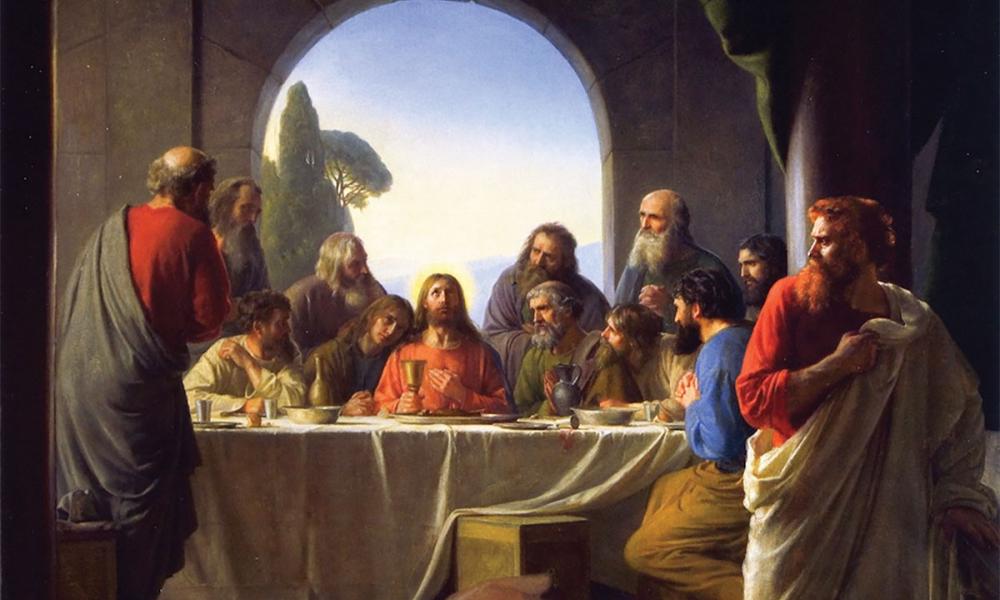
A function of revelation is clarifying confusion and what isn’t clear. And this function is displayed in the two sections of the Doctrine and Covenant’s covered in this coming week’s Come Follow Me lesson. In Section 27, we learn that it isn’t necessary to use wine in the sacrament (and, in fact, “it mattereth not what ye shall eat or what ye shall drink”), and in Section 28, we are told that who receives revelation matters—that revelation binding on the whole church comes to the Prophet, whose revelations are supreme. As I have for each lesson so far this year… Read More
-
•
•
12 responses
Within the corpus of J. Golden Kimball folklore, there is a story of Elder Kimball getting bored during a long process of sustaining officers at a stake conference somewhere south of Provo, Utah. Noticing that most of the congregation was nodding off or had fallen asleep while mechanically raising their hands for every name read, he continued in his usual voice, stating: “It is proposed that Mount Nebo be moved into Utah Lake, all in favor manifest by the usual sign.” The majority of the people raised their hands. Then, Elder Kimball paused, looked around, and screeched in his magpie… Read More
-
•
•
4 responses
What is a priesthood ordinance’s method of action? What Hyde describes in this short article seems to be both less direct, and to emphasize the mediation of the priesthood and the priest conducting an ordinance, more than we typically would today. The gift of the Holy Ghost also seems conspicuously absent. Read More
-
•
•
One response

One often forgotten feature of the Doctrine and Covenants is the very personal nature of many of its revelations. This week’s Come Follow Me lesson includes several sections of these revelations, including the unusual compilation of revelations found in section 23, which was given serially to Oliver Cowdery, Hyrum Smith, Samuel H. Smith, Joseph Smith, Sr., and Joseph Knight, Sr. Two other sections of this group are given to Oliver Cowdery: the first along with Joseph Smith, Jr. and the second in conjunction with John Whitmer. And the final section was given to Emma Smith and is best known as… Read More
-
•
•
18 responses
If the Book of Moroni is an instruction manual to “build a church,” as Michael Austin suggests, with the “nuts-and-bolts how-to-run-a-church stuff that anybody trying to reassemble what the Nephites built will need to know,”[1] then Doctrine and Covenants Section 20 represents an effort to take that manual, adapt it and expand on it for the restored Church of Christ. Known as the Articles and Covenants, the section is something like a charter for the Church in the early 1830s, capturing how to function as a church and the basic information about the Church (with occasional updates up to the… Read More
-
•
•
2 responses
Also, Native Americans make an appearance. Read More
-
•
•
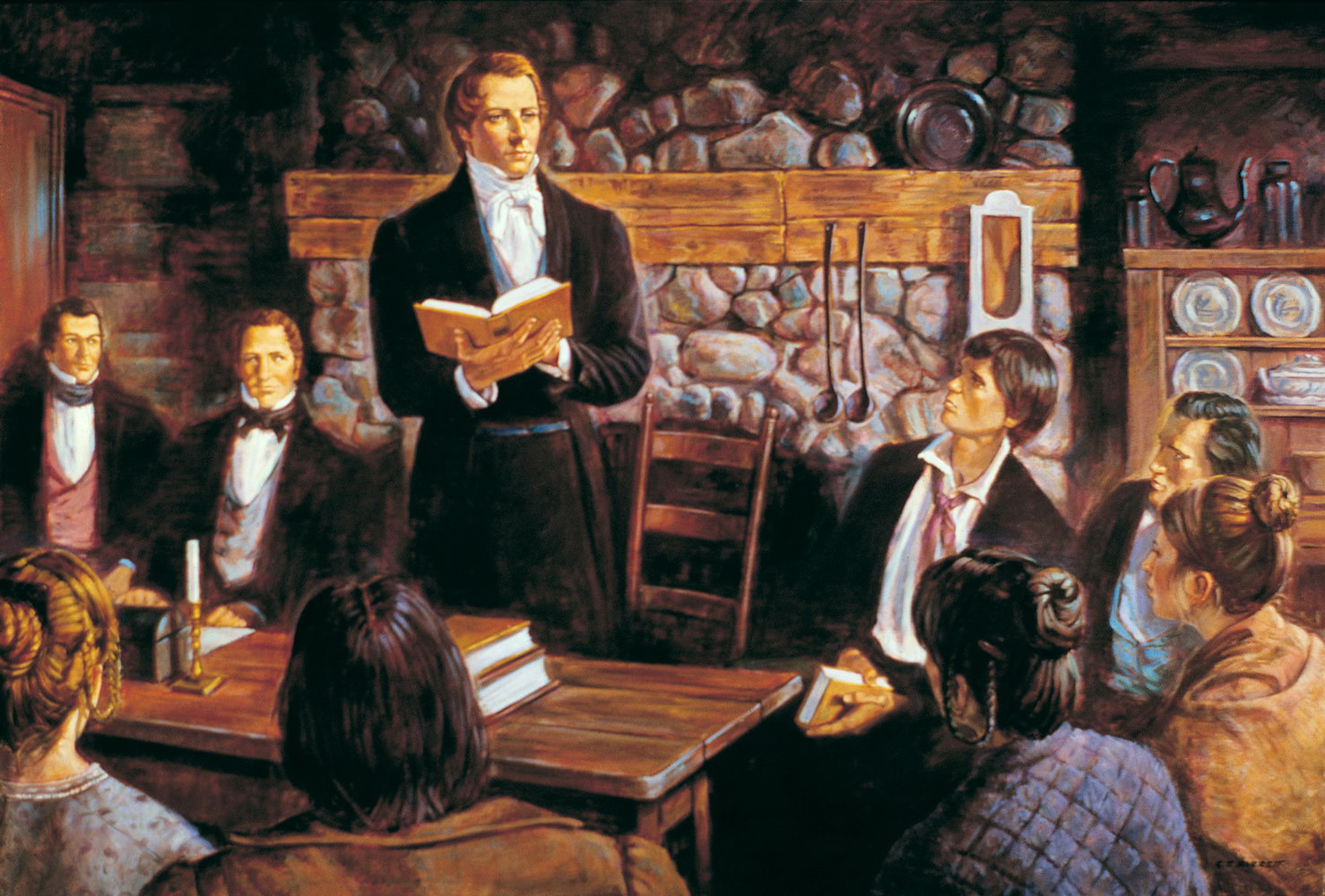
Administrative acts don’t always get the same attention that ordinances and more dramatic events. And in comparison to the First Vision, the Martyrdom and a number of other events, the organization of the Church doesn’t get as much attention. This is also true in poetry. But even so, there are poems that mention the organization of the Church. This week’s Come Follow Me lesson discusses sections 20 and 21, both of which refer directly to the organization of the Church. And the third section covered in the lesson, section 22, makes plain the need for baptism by proper authority, something… Read More
-
•
•
8 responses
Years ago, I attended a testimony meeting that began with a counselor in the bishopric talking about how grateful he was to be a part of a religion where believed that God was full of grace and would save almost every individual in one degree of glory or another. He quoted from the Vision in Section 76, and discussed how all but a very few would be saved in the Telestial, Terrestrial, or Celestial Kingdom and how grateful he was that God loved His children enough to make a plan that allows pretty much everyone into heaven in some form. … Read More
-
•
•

The sections of the D&C covered in this week’s Come Follow Me lesson are apparently about the calling of the twelve apostles and paying for the Book of Mormon. But they also include themes that don’t directly bear on these purposes. Perhaps the most important theme is the call for repentance, and the subsequent forgiveness. Both sections talk about repentance: section 18 discussing the role of missionaries and members in calling the world to repentance, and section 19 including the oft-cited imploring of the Lord to repent in verse 16: “For behold, I, God, have suffered these things for all,… Read More
-
•
•
6 responses
What were the three witnesses promised and what did they claim to experience? The basics of answering this question seems obvious—they saw the gold plates and other artifacts related to them. What is less apparent is how the Three Witnesses had that experience, since there are indications that they viewed the plates in vision, rather than experiencing them in a tangible way. There is often a desire to make their experience out as being more materialistic than it was, perhaps as a result of conflating their experience with that of the Eight Witnesses, contradictory recollections of those who knew the… Read More
-
•
•
One response
Most of this article is not actually about repentance. Read More
-
•
•
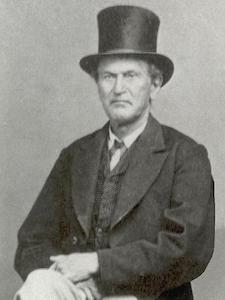
This week’s Come Follow Me lesson includes several similar sections of the Doctrine and Covenants: three revelations to David Whitmer, John Whitmer and Peter Whitmer, Jr., who have asked the Lord where they should focus their efforts. The fourth section in this lesson is essentially the call to David Whitmer, Martin Harris and Oliver Cowdery to be the three witnesses to the Book of Mormon. But while these sections have similar purposes and focus on the Whitmer family, they are far from the same. Even the most similar, the revelations to John and to Peter Whitmer, Jr., have some differences.… Read More
-
•
•
Orson Hyde’s lecture on faith seems a lot like the Lectures on Faith. Read More
-
•
•
30 responses
One of the persistent questions from Doctrine and Covenants, Section 13 is what is meant by the statement that the Priesthood of Aaron “holds the keys of the ministering of angels.” Answers from general authorities in recent years have varied, including the idea that the Aaronic priesthood comes with a special privilege to have the visitation and ministering of angels;[1] the idea that when men ordained with the Aaronic priesthood serve other people, they act as ministering angels themselves;[2] and the idea that when men ordained to the Aaronic priesthood administer ordinances that offer a remission of sins to those… Read More
-
•
•
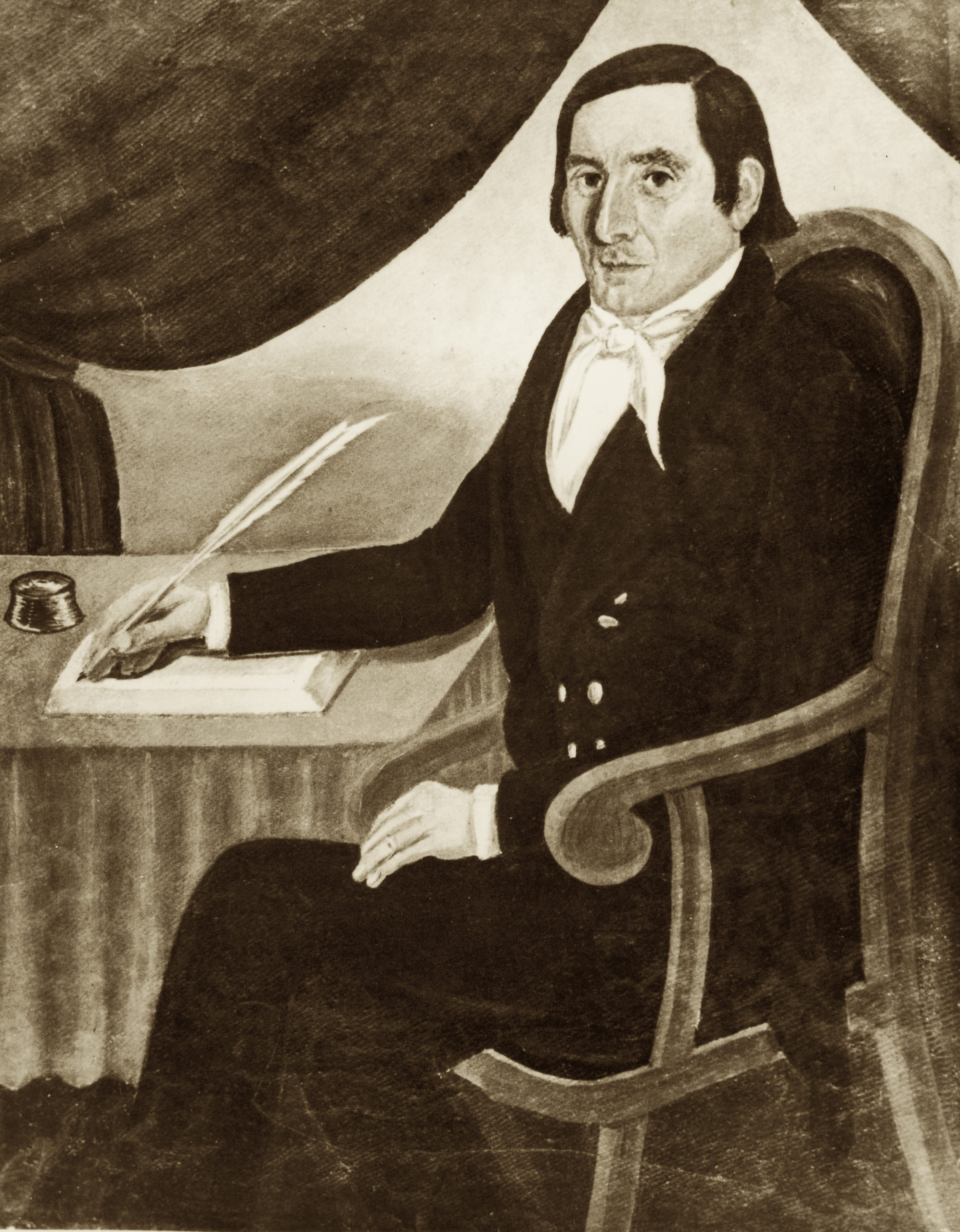
The two sections of the D&C for the next Come Follow Me lesson are both quite short, but the second covers one of the most significant events in Church history—the visit of John the Baptist restoring the Aaronic Priesthood and the ordinance of Baptism, found in section 13. But before that, in section 12, we find a blessing on Joseph Knight, Sr., who sought to know what he should do to build up the kingdom. Surprisingly, the answer to that is not often found in the earliest Mormon poetry—when this poetry speaks of Zion or of the kingdom, the message… Read More
-
•
•
4 responses
Everything makes sense until the last sentence. Read More
-
•
•
4 responses
Doctrine and Covenants Section 10 is interesting in its discussion of the Lord’s church because it seems to use the term in two different ways. One definition is the institution that we’re most likely to think of when we hear the term—the one we call Church of Jesus Christ of Latter-day Saints. The second is what has been loosely termed the “church without walls” or the “invisible church”—the collective group of people who are in tune with the Holy Spirit and do God’s work in the world. Both definitions are important to understand and think about in our relationship to… Read More
-
•
•
One response
The story of the First Vision is one of the most beloved in all the Gospel, and many of us have sat through multitudes of lessons on what truths this vision taught, one of which being that the creeds of all of the other religions are an abomination to God. Sometimes this has been interpreted as meaning that the religions are an abomination, but that is not what God said–it was the creeds that God hated. Weirdly, however, while there are some creeds that teach things that we find abominable, there are many that are perfectly fitting with our doctrine.… Read More
-
•
•
11 responses
I am currently serving as the RS president in our ward. Basically I have spent the last almost year pining and waiting for things to get back to normal, but lately I have been thinking that maybe that is not at all what I want. Don’t get me wrong, I can’t wait until we can leave the house without masks and can be with people without it, you know, ending in death. But I’m also realizing, what better time to shake things up a bit? Firmly believing that if you’re going to do something you might as well do it… Read More
-
•
•
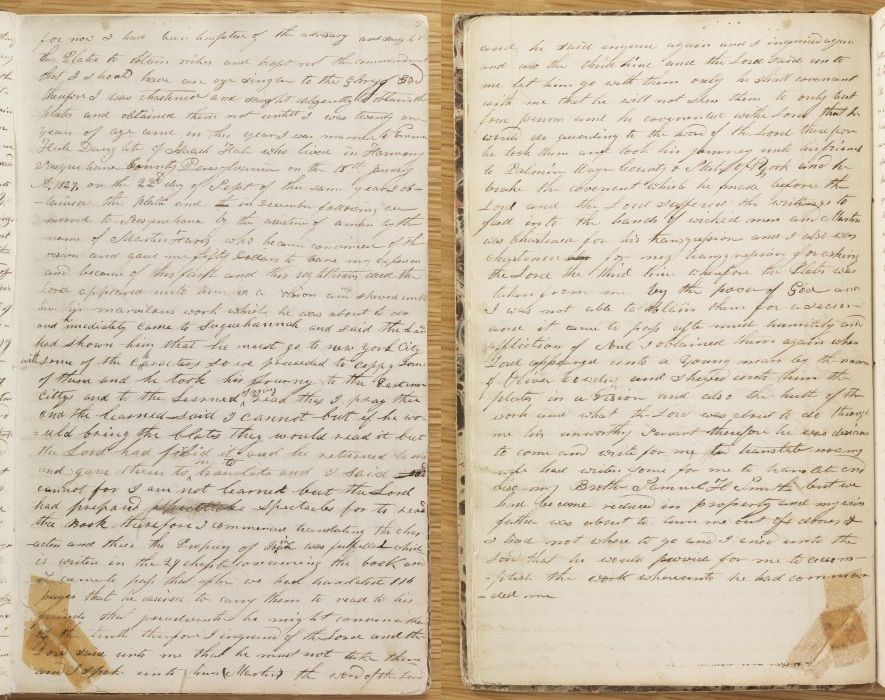
The two sections in this week’s Come Follow Me lesson seem very different. The first, section 10, concerns the aftermath of the loss of the 116 manuscript pages containing the initial translation of the Book of Mormon. In contrast, section 11 is a revelation of advice to Hyrum Smith. But in both of them is a message of seeking the Lord and relying on Him—the first proclaiming that God foresaw everything from the beginning, so we should rely on Him, and the second urging reliance on Him by accepting revelation and prophecy. Seek Ye The Lord by Maria Berry… Read More
-
•
•
2 responses
Orson Hyde’s explication of doctrine, like the Articles of Faith, begins with the nature of God, although Hyde’s treatment is about 30 times as long. Read More
-
•
•
15 responses
In a land of myth and a time of magic, the destiny of a great kingdom[1] rests on the shoulders of a young man. His name … Joseph. If you couldn’t tell from the text above, my wife and I have been watching the TV series Merlin lately. We’ve rather enjoyed their take on the Arthurian legends. To me, there is something fascinating about stories that are told and retold time and time again for hundreds of years. Now, I inserted Joseph’s name into the opening sequence of that TV series for this post because while the United States isn’t… Read More
-
•
•
6 responses
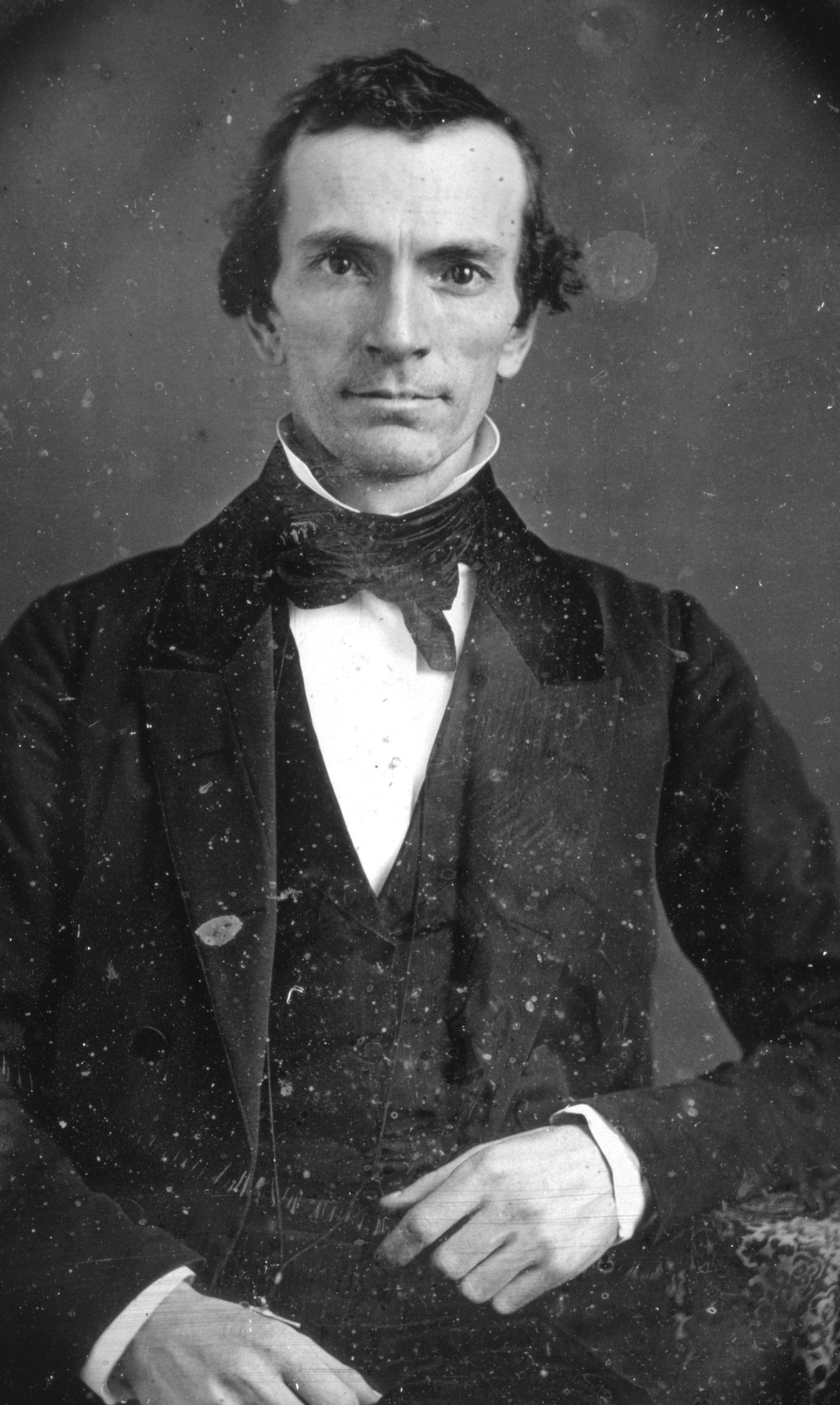
The central character in this week’s D&C sections is Oliver Cowdery, the primary scribe and assistant to Joseph Smith in the translation and publication of the Book of Mormon. In our mythology[1. I would hope that my use of “mythology” isn’t interpreted as a suggestion that the story is false. I don’t believe that.], we frequently recount the story, told in two of these sections[2. D&C 8 & 9], of Oliver’s attempt and failure at translating the Book of Mormon, often to teach the idea (among others) that receiving revelation is work, something that we need to put effort into.… Read More
-
•
•
4 responses
The subject of the priesthood office has by itself already caused more contention, bitterness and jealousy between the Catholic and the Protestant church than all remaining matters of dispute combined. Read More
-
•
•
8 responses
I share here a sacrament meeting talk I delivered recently in my St Louis congregation. I suspect there have been many other such sermons on the same topic delivered in wards around the globe over the past three months. President Nelson’s October address seems to have made a powerful impression on our people in this time of spiritual hunger. I endorse President Nelson’s message and am grateful to have reflected on it at length here. In one of the most enigmatic scenes in the Old Testament, a man stands alone on the bank of the Jordan river at midnight. The… Read More
-
•
•
6 responses
In an interview ranging from discussing Hugh Nibley to missionary work in New Zealand to systematic theologies to the dedication of the Swiss Temple, Kurt Manwaring recently sat down with Latter-day Saint apologist (and retired professor of political science) Louis C. Midgley. What follows here is a co-post to one at Kurt Manwaring’s site, where I’ll focus in on a couple points of particular interest, but for those interested in reading more, hop on over to the full interview here. Louis Midgley was a friend and colleague of Hugh Nibley and has worked hard to defend Nibley’s career and to… Read More
-
•
•
One response

We’re four weeks into the year, and we’ve finally reached the beginning of the Doctrine and Covenants. I know we started the book weeks ago, but what I mean to say is that this week we’re now working with the earliest material in the Doctrine and Covenants. Section 3 is the first revelation from Joseph Smith for which a text has survived (even pre-dating the text of the Book of Mormon), while for Section 5 is the revelation for which we have the earliest extant copy of any of Joseph Smith’s revelations (a copy created by Oliver Cowdery after his… Read More
-
•
•
3 responses

In the three sections covered in this week’s Come Follow Me lesson we go with Martin Harris from the 116 pages to being a witness, with a detour to Joseph Smith Sr. and what it means to serve God. While I haven’t found poems that mention the events associated with these sections, there are a number that examine the principles in them. For example, the lesson discusses Martin Harris’ worries about his standing in the community and with his wife as one of the contributing factors behind him seeking the 116 manuscript pages, and draws from Section 3 the principle… Read More
-
•
•
2 responses
The translator thought about it and…just gave up. Read More
